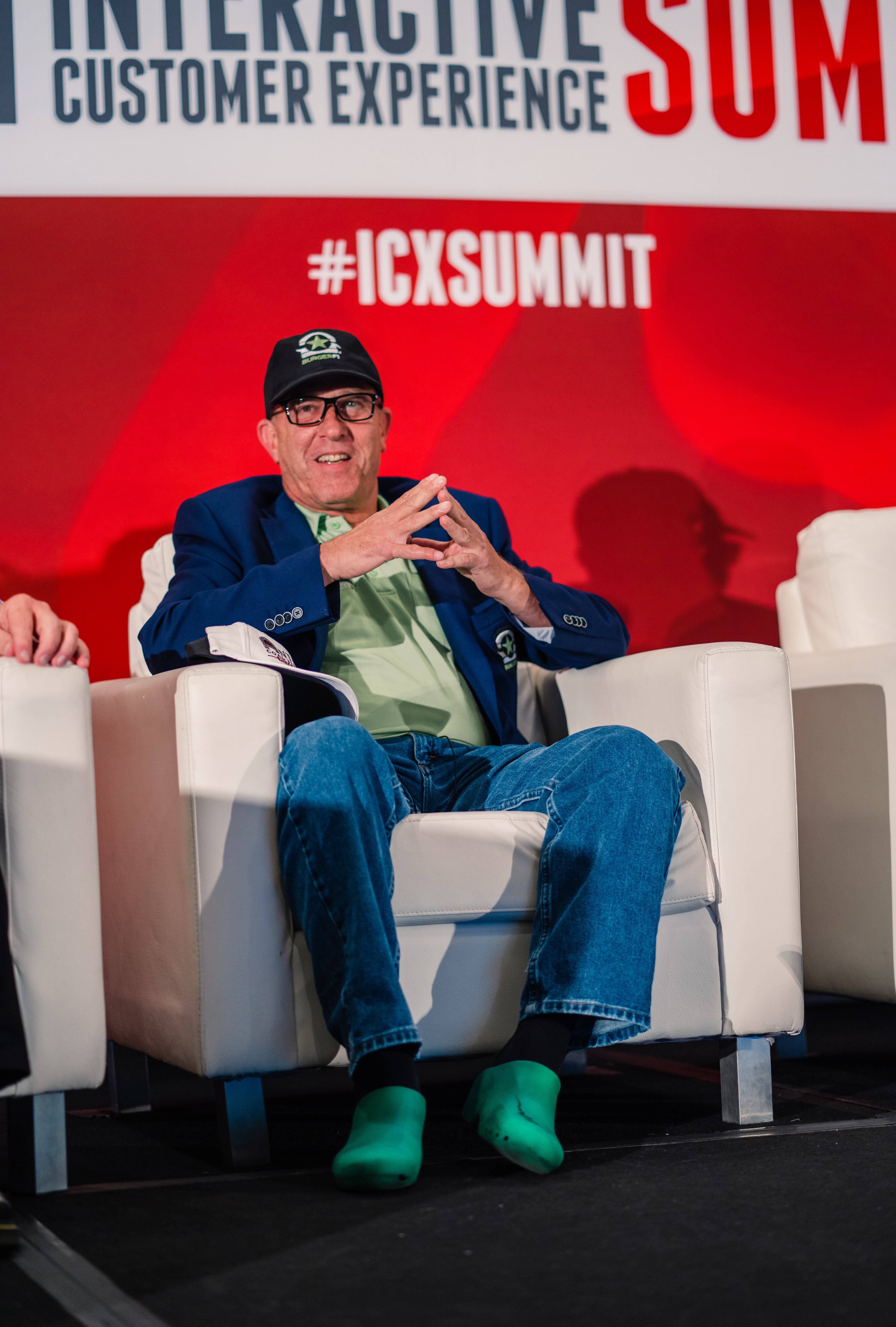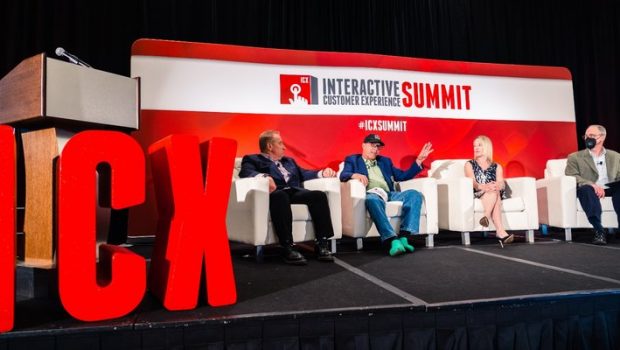Testing new technology? Run, don’t walk| Interactive Customer Experience (ICX) Summit 2022
Service businesses are relying on machine learning, unattended order stations and social media outreach, with additional solutions on the way.
Chris Artinian, Steve Lieber, Christina Pletnewski and Sam Gerace brainstorm betting on technology during the ICX Summit.
Anyone in a service business today — whether it's foodservice or replacing automobile windshields — relies on the latest technology if they hope to succeed.
Whether it's knowing how many customers need to be served in the next week or responding to a customer complaint right away, service businesses are relying on machine learning, unattended order stations and social media outreach, with additional solutions on the way.
"We're learning every day about new things that can automate some of these decisions for us based on the immense amounts of data that we're getting, in our case through our POS system, through our loyalty program, which has a lot of…entry points for our guests," Chris Artinian, president and CEO of Condado Tacos, said during a session on placing bets on technology during the Interactive Customer Experience Summit in Columbus, Ohio.
While the session focused on the importance of technology, panelists were quick to recognize the challenges they confront honing a staff that is ready to embrace technology and trying to decide which of the many available products to embrace.
Sam Gerace, CEO of Lineup.ai, a provider of sales forecasting and labor scheduling software for foodservice and sponsor of the session, served as moderator.
Technology investment pays off
For Columbus based Condado Tacos, the investment in online and mobile ordering paid off big during the coronavirus pandemic.
"Not only was it easy for the guest to order, but it also had full integration…of pulling in the third party delivery," Artinian said.
Also, capturing data helped the company become more efficient and customize the guest experience.
"We're not missing all the specialty requests, so it's really helped us deliver on the quality and the guest experience and delivering what our guest wants," Artinian said. "We're able to get the throughput in the dining room to get…appetizers out faster, drinks out faster, in a highly customized manner."
 |
Steve Lieber notes the ways technology has paid off for BurgerFi. |
Artinian is far from alone.
BurgerFi, a fast casual chain based in North Palm Beach, Florida, benefitted from similar investments, noted panelist Steve Lieber, vice president of franchise business development.
In 2015, BurgerFi invested close to $1 million in online ordering and a mobile app and a loyalty program, all integrated. They also saw a 25% growth in delivery, so they invested in delivery platforms.
As a result, 2016 to 2018 saw 25% year-on-year increases in delivery sales, and in 2020 (the year of the pandemic), experienced a "huge payoff" for the company.
Lieber noted that when COVID came, some competitors did not have enough delivery drivers and were scrambling to sign on with third party delivery services.
Self-serve kiosks pay off
While delivery was the top technology bet in Lieber's mind, self-serve kiosks have also proved helpful.
"Gratuities were higher with the kiosks than real people," Lieber said. "I believe the perception of the machines being more efficient (meant) that the customers tipped even more."
Lieber said BurgerFi is also working with ConverseNow, a provider of artificial intelligence enabled omnichannel voice ordering technology with machine learning capabilities, to improve handling phone calls.
Leadership matters
Lieber also cited the need for leadership that recognizes the importance of technology.
Where prior company leadership did not recognize the importance of QR codes and self-serve kiosks when Lieber first recommended them, a new CEO has supported the new technology.
The panelists agreed companies need to be proactive on the technology front and not be afraid to fail.
Panelist Christina Pletnewski, vice president of customer experience at Safelite Group, cited the importance of making sure all touchpoints in the customer journey interact without friction. For a service like windshield replacement, the company needs to get a lot of customer information early on in this journey, such as the vehicle identification number and what the insurance will cover.
"We are ripping out almost everything (technology wise)" Pletnewski said. The touchpoints need to talk to each other from the first call in, relay the necessary information and get the order to the store where the tech can pick it up and deliver the right piece of glass.
Labor efficiency matters
Pletnewski's response underscored the role of technology in delivering profits borne of labor efficiency, a point restaurateur Artinian was quick to pick up on.
"We cannot find quality people," Artinian said. "How do we create efficiency where we reduce the amount of people needed, especially in production?"
In response, Candado Tacos has invested in technologies that require fewer employees, such as kitchen display systems and at the same time get the orders to the kitchen faster.
"We're actually reducing at least one and a half persons," he said.
Future solutions
Looking to the future, Pletnewski is excited about a "virtual human" the company is testing that learns from questions through interaction to improve the answers that are "very very lifelike."
"It does feel like you are interacting," Pletnewski said.
Lieber and Artinian agreed that robots are here to stay. Artinian specifically sees a place for them in the back of the house.
When evaluating technology, Artinian said the company determines if they can maintain or increase productivity and reduce labor hours. They usually start in a lab, then test the technology in two restaurants. The tests can be 30 to 90 days and sometimes longer.
Lieber, for his part, is excited about mentoring young people, a project that has already yielded benefits when it comes to technology.
"You teach them business and they teach you technology," Lieber said. "Right now we're scoring on Tik Tok. Why? Because we brought in interns two years ago and learned about Tik Tok. And it's the cheapest, freest, most attention grabbing platform ever."
Artinian said it's okay to fail fast. In retrospect, he feels he was slow to adopt some stuff.
"You have to realize that your vision is not necessarily the customer's vision," Lieber said.
When it comes to assessing technology, Lieber suggested asking if it makes the operation simpler and more cost effective, then consider the impact on all stakeholders.
Photos by Willie Lawless.








Gloss